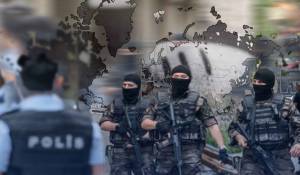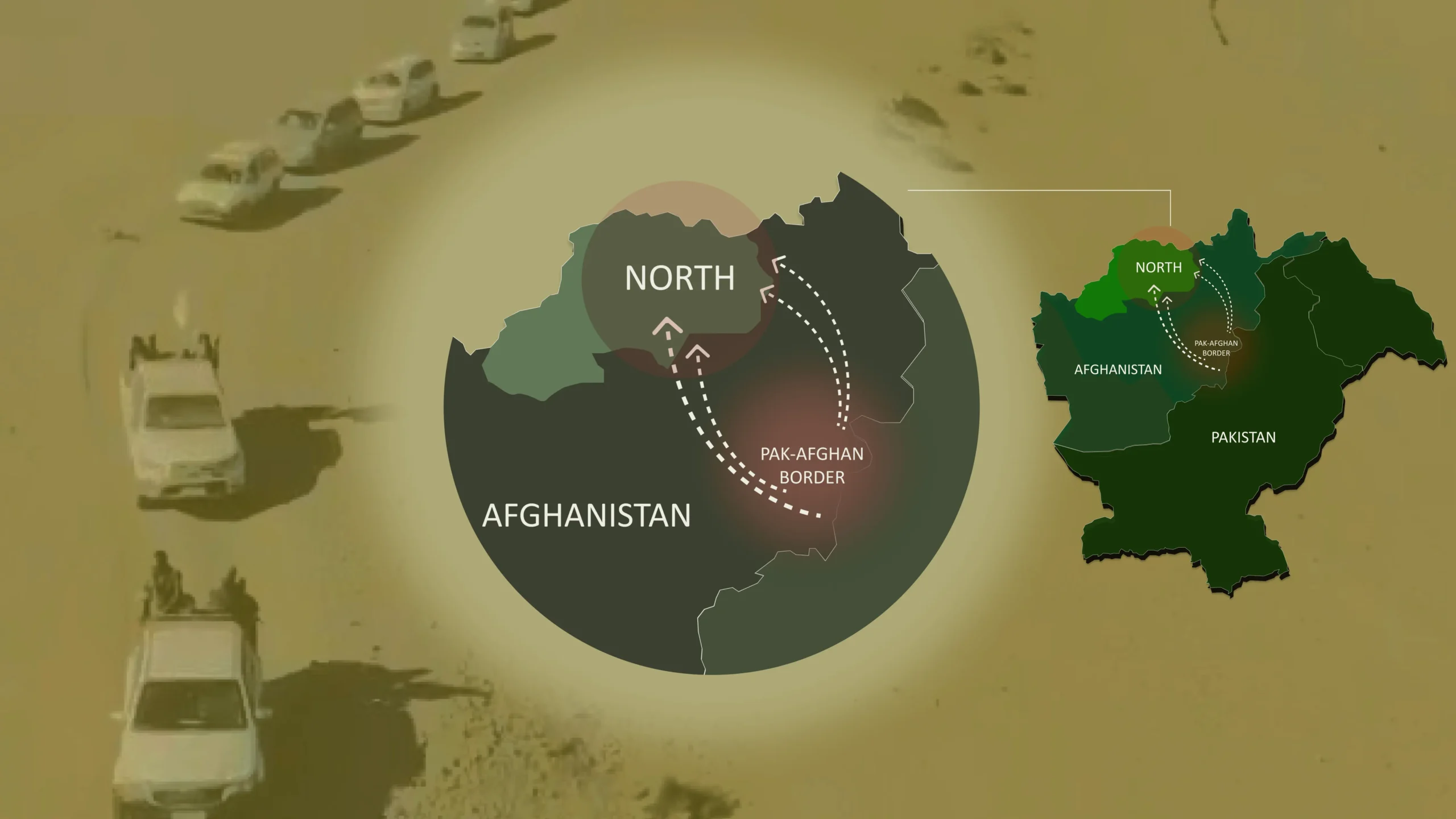
Iftikhar Firdous

March 04, 2026
By | Iftikhar Firdous , Ihsanullah Tipu Mehsud

The spokesperson for the Taliban administration in Afghanistan, Zabiullah Mujahid, has refuted recent media reports claiming that the process of relocating members of the Tehreek-e-Taliban Pakistan (TTP) or the Pakistani Taliban to Afghanistan has already begun, saying that all such reports were “baseless”.
Several local and regional Afghan media outlets had earlier reported that around 200 militants affiliated with the TTP had been relocated from the Pak-Afghan border area to northern Afghanistan. The Government of Pakistan has been persistently demanding the relocation of the TTP militants away from its border region with Afghanistan due to the recent surge in attacks across the South Asian country after the TTP broke a fragile ceasefire agreement with the government in November last year.
Earlier this month, Mujahid, while speaking to The Khorasan Diary (TKD), had confirmed that a decision had been made to relocate the militants upon Pakistan’s request.
“We will relocate only those refugees from the Durand Line to other [Afghan] provinces who pose a threat to Pakistan. Those posing no threat to Pakistan will not have their status affected,” he had said.
Recently, however, he dismissed media reports and denied that the process of relocation had already begun.
“Pakistani Taliban have not been transferred to any province of Afghanistan and all such reports are baseless,” Mujahid told TKD on Friday.
Some key, high-ranking TTP sources have also refuted the claims related to the relocation of their militants to northern Afghanistan.
“We are not aware of any such happening. Nothing like this has happened yet,” a TTP militant told TKD over the phone. “This is what we are hearing from you. If something like this had happened, we would have certainly been aware [of it].”
A senior Pakistani security official, privy to the country’s Afghan affairs, who spoke on condition of anonymity, told TKD that the Islamic Emirate of Afghanistan (IEA) had in principle agreed to “remove” elements that troubled peace on Pakistan’s soil.
The official carefully measured his words and said: “The Afghan Taliban are doing their best, we, of course, cannot force them to begin a new war in Afghanistan, as it would not be in the interest of Pakistan.”
He explained that a carefully drafted verbal agreement had been committed. “What it will actually entail to is yet to be seen,” he said.
The official declined to comment when asked if any financial assistance would be provided for the relocation of the Pakistani Taliban from the international border.
Another key government official aware of the proceedings confirmed to TKD that a senior leader of the Afghan Taliban, “a confidante of the Taliban top leadership” had been in Pakistan in the beginning of June and had given nod to the resettlement plan.
At least two sources from the Afghan Taliban leadership involved in the process said that leaders of various militant groups from Pakistan – that included TTP leader Noor Wali Mehsud and other prominent Pakistani Taliban commanders like Akhtar Muhammad Khalil– had been summoned to Kabul.
“It is a difficult task to convince them”, the sources added without providing any further details.
In the previous round of peace talks during the tenure of General (Retired) Faiz Hameed – the former director-general of Pakistan’s spy agency, the Inter-Services Intelligence (ISI), who was later appointed as the Corps Commander Peshawar – the resettlement plan for the militants was estimated at a cost of Rs 7 billion in case of a failure of talks between Pakistan and the TTP.
A TKD correspondent from Kabul added that some 200 families of the Pakistani Taliban, many of whom were associated with Lashkar-e-Islam, were asked to move to Parwan, Kapisa, and Baghlan provinces of Afghanistan. However, this move had been taken before the official process under the current scheme of things began.
There are an estimated 43,700 Pakistanis living in Afghanistan, mainly in eastern Paktia, Khost, Paktika, and Kunar provinces. These include various groups of the Pakistani Taliban, including prominent factions like the Hafiz Gul Bahadar and the TTP.
At the same time, the recent visit of the Taliban interim government interior minister, Sirajuddin Haqqani, to the northern provinces of Afghanistan might suggest his involvement in the relocation process of the TTP, in addition to the recent increase of the Islamic State Khorasan Province’s (ISKP) activities in the north of the country.
During his trip, Haqqani addressed government officials and segments of the Afghan society in Samangan, Kunduz, Baghlan, Balkh, Takhar, Jawzjan, Sar-e-Pul, and Faryab provinces, repeatedly downplaying issues of ethnic fault lines within the Emirate’s policies and stressing the unity of the government.
Northern provinces have been experiencing major attacks claimed by ISKP, specifically in Balkh and Badakhshan, where high-ranking Taliban officials have been killed.
Furthermore, official sources from the Afghan Taliban told TKD correspondent from Kabul that Taliban authorities intend to use TTP fighters as proxies against the anti-Taliban National Resistance Front of Afghanistan (NRF), particularly against Ahmad Masood. The NRF has vowed that it would “vehemently reject” any such attempt by the Taliban administration seeking the relocation of Pakistani Taliban to the country’s north.
“We strongly condemn the Taliban plans to establish settlements for the TTP in Northern Afghanistan,” Ali Maisam Nazary, the NRF’s head of foreign relations, said over the phone.
“This move will accelerate their downfall, while simultaneously escalating security issues and igniting social and political instability both in Afghanistan and the wider region.”
Nazary added that the NRF was determined to fight back and defeat all invaders and terrorists.
“This move will not stabilize Afghanistan nor address any threat a country faces,” he added.
While analysts are assessing the proposed decision as significant in terms of the Taliban government’s readiness to address neighboring countries’ security concerns, they also are skeptical if the decision will actually be implemented and if it will be effective in the long run.
“The decision by the Taliban government to relocate Pakistani refugees away from the border, if implemented, will go some way in addressing Pakistani concerns regarding the use of these refugee camps by the TTP,” Ibraheem Bahiss, Afghanistan Analyst with the International Crisis Group, told the TKD on phone.
He said that the move was likely to be viewed as an example of pragmatic security cooperation between Afghanistan and one of its neighbors and interpreted as a sign that Kabul was willing to take some steps to address the security concerns of regional countries.
“However, even if fully implemented, it seems unlikely that this decision will stop TTP-related violence inside Pakistan. Therefore, it is hard to imagine that this decision alone will harken the end of testy relations between the two neighbors over the TTP.”
In the past, despite the Pakistani government’s persistent demands to bar different factions of Pakistani Taliban from carrying out attacks in the country using the Afghan soil, Afghan Taliban refused to cooperate.
The bond between the TTP and the Afghan Taliban has been historically traced back to United States’ invasion of Afghanistan in November 2001 when both the entities made a common front against the Western forces in Afghanistan. The recent United Nations Security Council (UNSC) Monitoring Team’s report on Afghanistan also has outlined the bond between Afghan Taliban and Pakistani Taliban as “closest”, adding that the Afghan Taliban considered the TTP a “part of the Emirate”.
Taliban’s relocation of the TTP and baring the latter somehow from carrying out attacks in Pakistan will certainly be considered as the biggest achievement of Pakistan vis-à-vis Afghanistan since August 15, 2021, when Taliban formally took over Kabul. But the question will also certainly arise about how long the Afghan Taliban will maintain this commitment.
A Correspondent of The Khorasan Diary contributed reporting from Kabul, Afghanistan.